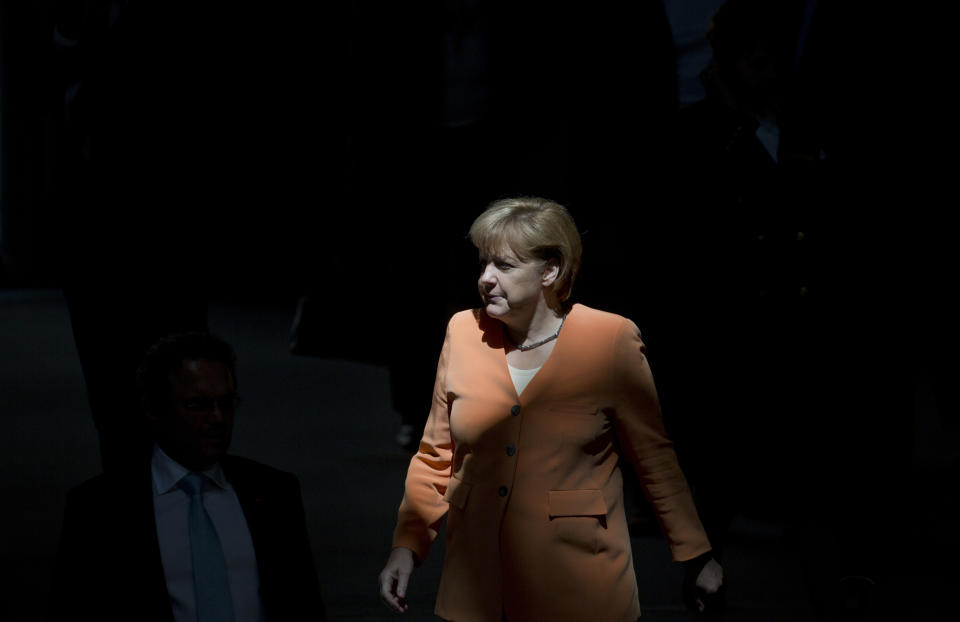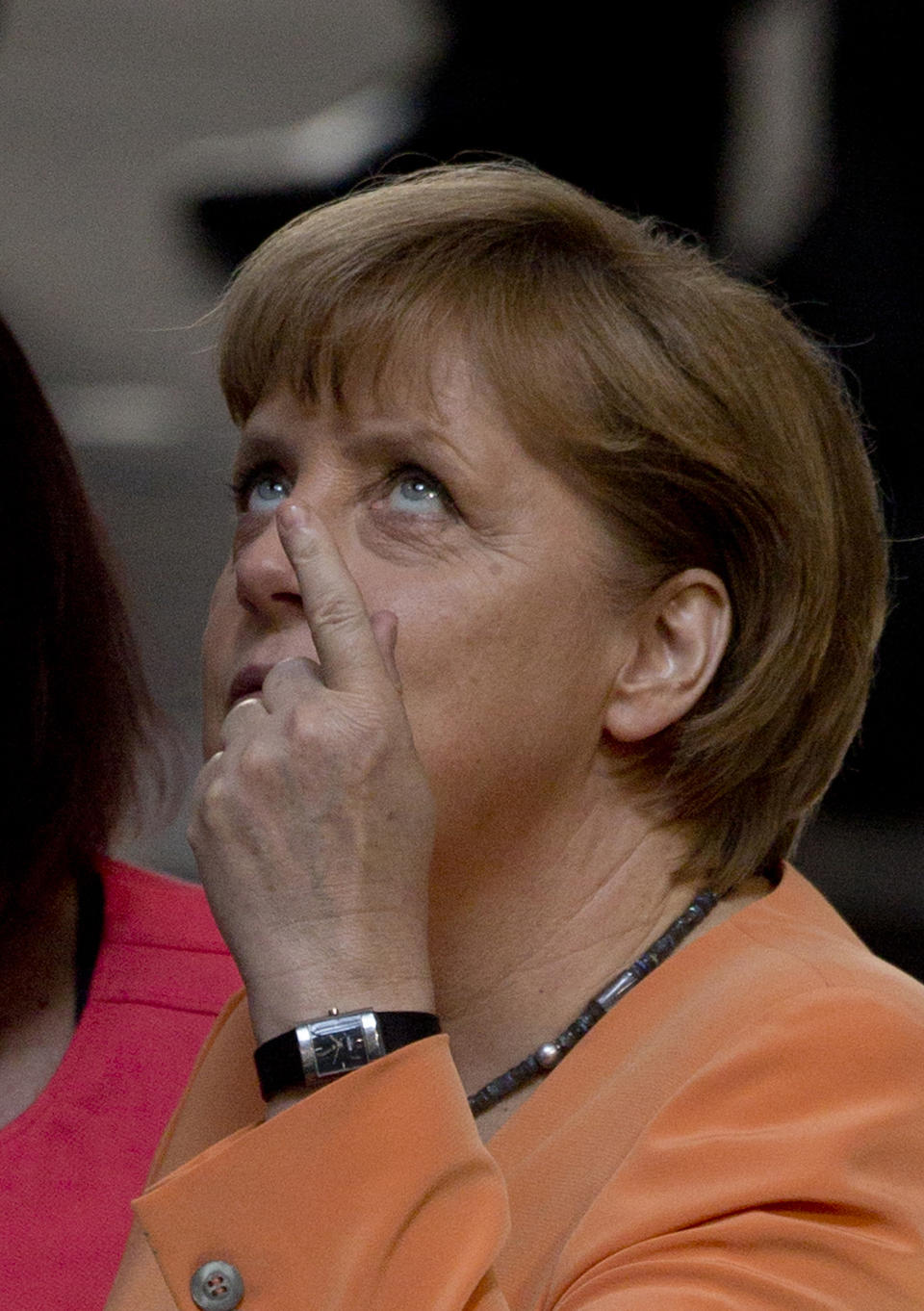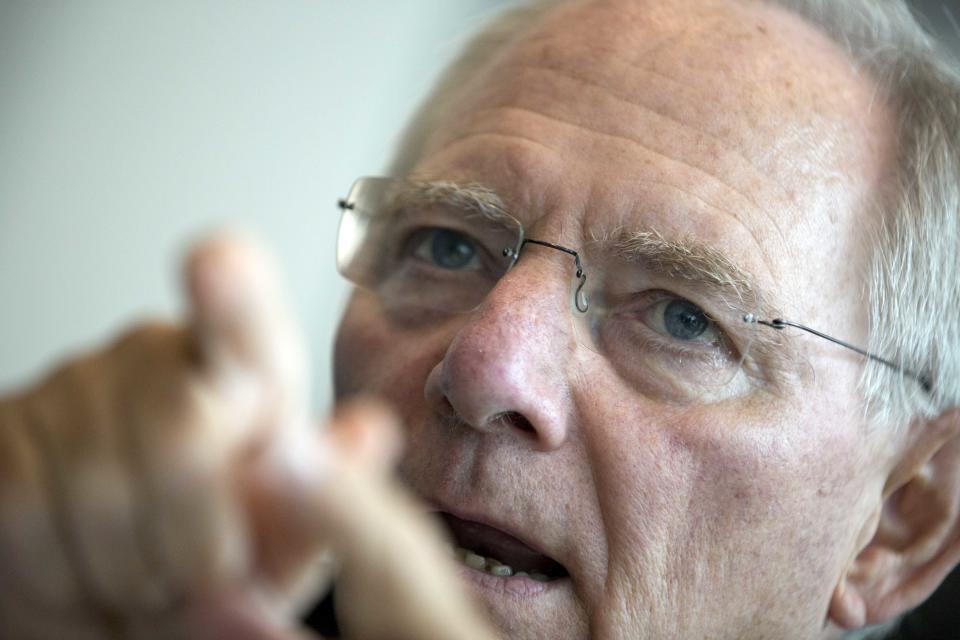German Parliament approves Spanish bank rescue
BERLIN (AP) — Germany's Parliament has approved a rescue package worth up to €100 billion ($122 billion) for Spain's struggling banks, which the finance minister said was needed to help prevent the eurozone's debt crisis spreading further.
Lawmakers voted Thursday 473-97 in favor, with 13 abstentions. The two main opposition parties joined in backing the Spanish rescue.
Germany's Parliament has to endorse all decisions to use money from the eurozone's rescue fund. The country is Europe's biggest economy and the biggest single contributor to the bailout fund; it will guarantee loans of up to €29 billion under the Spanish package.
Bailing out struggling eurozone nations isn't popular in prosperous Germany and helping banks is even less so, but Chancellor Angela Merkel's government argued that stabilizing Spain's banking sector — which has been hit hard by a burst real-estate bubble — is in the country's own interests. Eurozone finance ministers are to give final approval Friday.
Finance Minister Wolfgang Schaeuble said the Spanish government itself is on the right path, pushing through unpopular austerity measures and reforms to get its finances in order. But it needs help to cope with losses at its banks, as investors who fear the Spanish government may be overwhelmed by such costs have pushed its borrowing rates high.
"Because of the weakness of some Spanish banks, the financial stability of the eurozone as a whole is threatened in a generally uncertain market environment with high interest rates for Spanish government borrowing," Schaeuble said.
"A quick restructuring of struggling Spanish financial institutes is important to secure the Spanish state's capital market access at manageable interest rates and prevent contagion effects on other countries in the eurozone," he added.
Spain has the 17-nation eurozone's fourth-biggest economy, far bigger than those of the three countries — Greece, Ireland and Portugal — whose governments have been bailed out.
"Without the extreme uncertainty on the financial markets, Spain would be in a position to get its banking sector in order on its own," Schaeuble told lawmakers. "But ... in this exceptional situation, we are helping the Spanish state against the financial markets' excessive nervousness and, in doing so, we are contributing to preserving the eurozone's overall financial stability."
The aid initially will come from the eurozone's current, temporary rescue fund, the €440 billion European Financial Stability Facility. The permanent, €500 billion, European Stability Mechanism is to take over when it's up and running — which won't be before September.
European leaders agreed at a summit last month that the ESM will eventually be able to funnel money directly to distressed banks — rather than governments — once an effective European banking supervisor is set up. But Schaeuble noted that in Spain's case the money will go to the government, which will be liable for repaying it, and that talk of direct bank aid is a question for the future.
A group of German economists recently denounced the summit's decisions, arguing that they risk increasing the exposure of taxpayers, retirees and savers to the debts of struggling banks. The government has rejected that criticism.
"Anyone who talks now about an imminent use of the ESM to recapitalize banks directly, or of collective liability for the debts of banks in the euro system, is waffling," Schaeuble said.
Lawmakers met in a special session because their summer break started at the end of June and they weren't scheduled to reconvene until Sept. 11.
Though his party joined in backing the Spanish bank rescue, Frank-Walter Steinmeier — the opposition Social Democrats' parliamentary leader — charged that Merkel's government had failed properly to explain its course, repeatedly laying down red lines which it then crossed.
"People simply don't understand any more where you want to go," he said.
The government's support for bailouts has caused unease even among lawmakers in Merkel's coalition, with some voting against them in recent parliamentary votes.
"We won't be able to solve the European debt crisis with more and more rescue funds, with more and more debts — this isn't a solution," said Manfred Kolbe, of Merkel's Christian Democrats. "Do we want to continue doing this every three months?"




